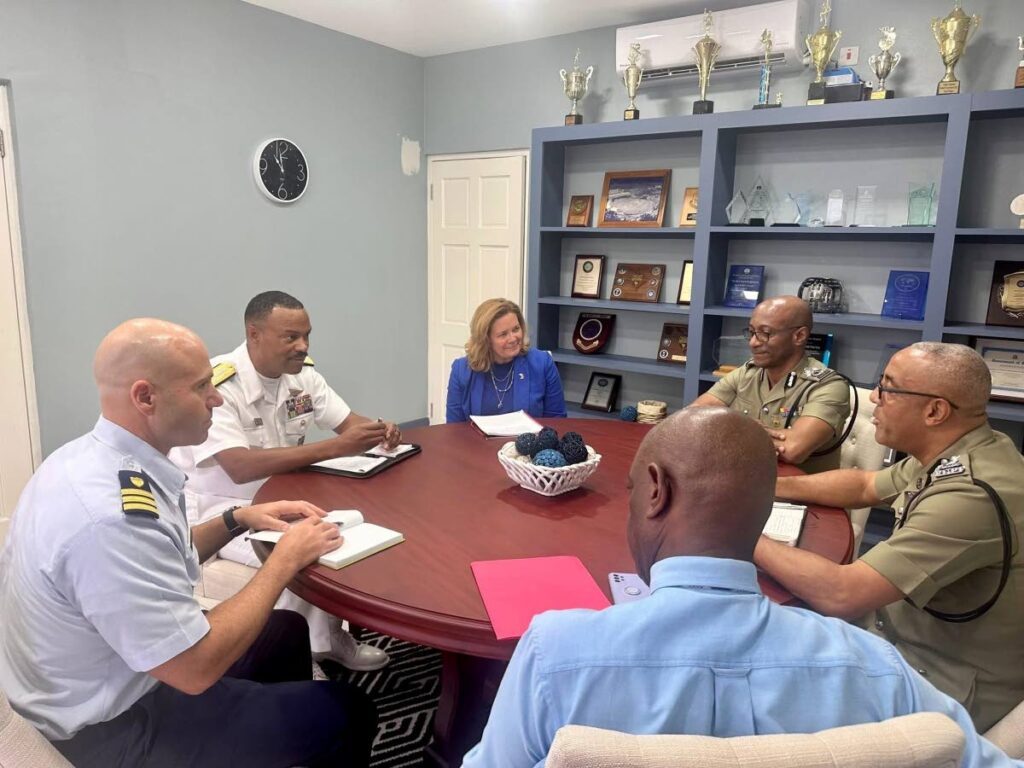The United States Southern Command (SouthCom) is intensifying its efforts to bolster military presence in the Southern Caribbean, combining diplomatic engagement with military strategy. This initiative aligns with President Trump’s directive to dismantle narco-terrorist networks operating from Venezuela, which are reportedly exporting cocaine and fentanyl to the United States. On October 15, SouthCom Commander Admiral Alvin Holsey concluded his visit to Grenada with a high-level meeting at the police headquarters in St. George’s. He was joined by Royal Grenada Police Force Acting Commissioner Randy Connaught and National Security Advisor Willan Thompson to discuss bilateral security measures addressing regional threats. SouthCom emphasized the importance of its longstanding partnerships with Caribbean nations in combating transnational criminal organizations and illicit traffickers. Grenada’s government, led by Prime Minister Dickon Mitchell, disclosed that the US has sought permission to install radar equipment and deploy technical personnel at the Maurice Bishop International Airport. Meanwhile, SouthCom showcased its military capabilities, including the deployment of the 22nd Marine Expeditionary Unit with AH-1Z Cobra and UH-1Y Venom aircraft, conducting live-fire exercises over the Caribbean Sea. These operations are part of the USS Iwo Jima Amphibious Ready Group’s mission to disrupt drug trafficking and enhance homeland security. Admiral Holsey also met with Antigua and Barbuda’s Chief of Defence Staff, Brigadier Telbert Benjamin, to strengthen regional cooperation. However, Antigua and Barbuda Prime Minister Gaston Browne reiterated his country’s stance against hosting foreign military assets, emphasizing neutrality and sovereignty.
US steps up diplomacy in Grenada, Antigua and Barbuda to combat narco-terrorists
